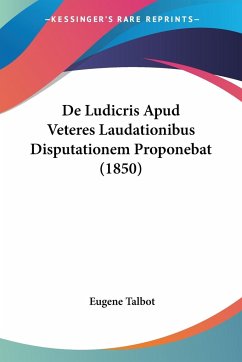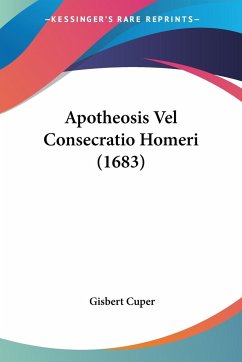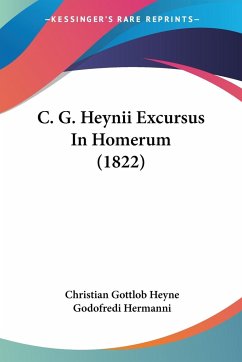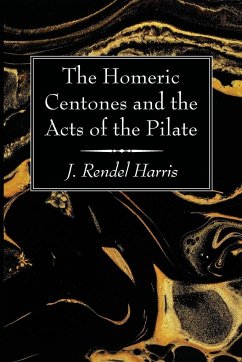Homerici Centones a Veteribus Vocati Homerokentra: Virgiliani Centones Utrique in Quaedam Historiae Sacrae Capita Scripti (1578) est opus quod continet centones, id est, versiculos ex operibus Homeri et Virgilii, quae ad alia opuscula pertinent, ut historia sacra. Centones scripti sunt auctoritate veterum, qui ea in scholis discipulis recitabant. Haec editio impressa est anno Domini millesimo quingentesimo septuagesimo octavo.Nonni Paraphrasis Evangelii Joannis. This Book Is In Latin.This scarce antiquarian book is a facsimile reprint of the old original and may contain some imperfections such as library marks and notations. Because we believe this work is culturally important, we have made it available as part of our commitment for protecting, preserving, and promoting the world's literature in affordable, high quality, modern editions, that are true to their original work.
Hinweis: Dieser Artikel kann nur an eine deutsche Lieferadresse ausgeliefert werden.
Hinweis: Dieser Artikel kann nur an eine deutsche Lieferadresse ausgeliefert werden.








